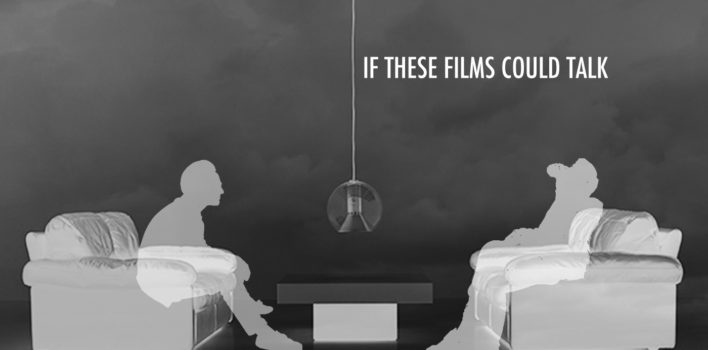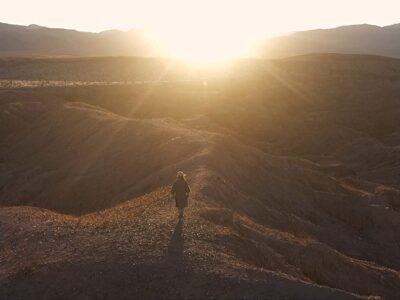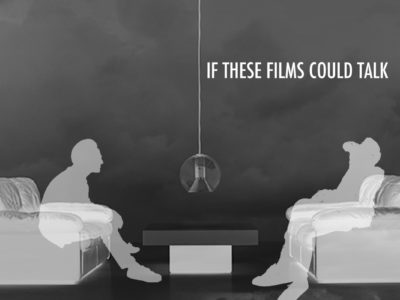Whose Playground Is This?: The Florida Project (2017) & The Beach Bum (2019)
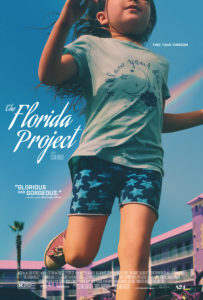 Florida was a meme long before the internet. A vacation destination, a retirement home, a place where dreams came true—all the manufactured joy money can buy. For all of Florida’s appealing façade, it often seems that common sense gets trapped beneath the swelter of that swampy heat. It’s been this way from the start—legend has it that Ponce de Leon died in Florida desperately searching for the Fountain of Youth so that he could live a while longer with his young bride. For everyone for whom Florida is an escape, it seems to be a bit of a dead end for others, a paradise as much as a prison. Two movies, The Florida Project (2017) and The Beach Bum (2019), have utilized this idyllic madhouse as the backdrop upon which to explore the myriad of ways we falsely denigrate some who struggle to escape while, simultaneously, admiring those who are privileged to simply enjoy existence. In the former, the promise of Florida is barren whereas, in the latter, it is a land of plenty. Watching these two movies, I was left with a single gnawing question: whose playground is this?
Florida was a meme long before the internet. A vacation destination, a retirement home, a place where dreams came true—all the manufactured joy money can buy. For all of Florida’s appealing façade, it often seems that common sense gets trapped beneath the swelter of that swampy heat. It’s been this way from the start—legend has it that Ponce de Leon died in Florida desperately searching for the Fountain of Youth so that he could live a while longer with his young bride. For everyone for whom Florida is an escape, it seems to be a bit of a dead end for others, a paradise as much as a prison. Two movies, The Florida Project (2017) and The Beach Bum (2019), have utilized this idyllic madhouse as the backdrop upon which to explore the myriad of ways we falsely denigrate some who struggle to escape while, simultaneously, admiring those who are privileged to simply enjoy existence. In the former, the promise of Florida is barren whereas, in the latter, it is a land of plenty. Watching these two movies, I was left with a single gnawing question: whose playground is this?
In Sean Baker’s The Florida Project, we follow six-year old Moonee and her rowdy compatriots as they wreak havoc up and down the well-worn walkways of the Magic Castle Motel. Located in Kissimmee, Florida, the motel’s bright fuchsia walls shine bright beneath the brilliant Floridian sun, but, for all its attempted grandeur, the light only reveals all the clearer what it is not—not quite Orlando, not quite magic. There’s a scene where an affluent couple on their honeymoon mistakenly end up at the motel instead of a Disney resort, horrified by the seeming squalor and desperate for their magical destination. Moonee and her friends look quizzically on at the slow-motion disaster as the bride freak outs. They can’t imagine what she means—after all, this is their home.
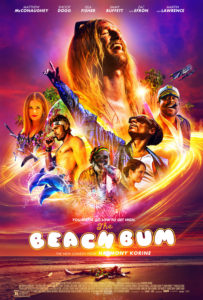 While Moonee runs amuck throughout her little kingdom, her fanciful existence protects her from the reality of her situation and from her mother’s deteriorating control. When we enter the story, her mother Halley has lost her job as a dancer for refusing to have sex with a patron. Denied the social assistance she desperately needs, she turns to selling knock off perfume and fake Disney passes. Progressively spiraling down and in desperation, she gives in to selling her body. While the audience understands her dire circumstances, the beauty of the film lies in the fact that Moonee isn’t simply blissfully unaware—she’s happily at home. She is allowed, despite all the difficulties, to enjoy the unadulterated love of her mother and to be nourished by the wider community of the motel—especially hotel manager and father figure, Bobby—all equally in this together. Through Moonee’s eyes, The Florida Project imaginatively presents their lives without a single judgment. Alongside Moonee, we are able to envision how life might be magical even when it’s miserable.
While Moonee runs amuck throughout her little kingdom, her fanciful existence protects her from the reality of her situation and from her mother’s deteriorating control. When we enter the story, her mother Halley has lost her job as a dancer for refusing to have sex with a patron. Denied the social assistance she desperately needs, she turns to selling knock off perfume and fake Disney passes. Progressively spiraling down and in desperation, she gives in to selling her body. While the audience understands her dire circumstances, the beauty of the film lies in the fact that Moonee isn’t simply blissfully unaware—she’s happily at home. She is allowed, despite all the difficulties, to enjoy the unadulterated love of her mother and to be nourished by the wider community of the motel—especially hotel manager and father figure, Bobby—all equally in this together. Through Moonee’s eyes, The Florida Project imaginatively presents their lives without a single judgment. Alongside Moonee, we are able to envision how life might be magical even when it’s miserable.
Unlike the rough edged facsimile of paradise found in The Florida Project, Harmony Korine’s The Beach Bum revels in all of Florida’s fantastic delights without any regard to expense or basic etiquette. Following the errant meandering of lascivious lush and infamous poet, Moondog, as he drifts in and out of lives as easily as he does consciousness, Korine’s film is a neon fever dream of pure hedonism. A remarkably perfect vehicle for Matthew McConaughey’s effortlessly easy-going persona, Moondog is the quintessential embodiment of a “Parrothead” who doesn’t need to be bothered with whether it’s 5 o’clock somewhere—there’s a beach and a drink, that’s all you need. Unlike Moonee, whose innocence alights the better qualities of all she encounters, Moondog is simply a half-formed adult whose wanton immaturity disregards all responsibility often to the detriment and destruction of those around him.
 The film is essentially a stream of (semi-)consciousness, following Moondog as he attempts to woo his muse and complete his long gestating book. This entails copious amounts of drugs in public spaces, casual sex with complete strangers in busy kitchens, and, of course, his daughter’s million-dollar wedding at his friend’s idyllic mansion by the bay. After presenting Moondog’s dingy lifestyle as existing one foot in the gutter, it’s revealed that he’s actually a multi-millionaire whose wanton ways just happen to be a personality quirk. While the film is a delight to watch unfold, if for no other reason than McConaughey’s performance, it’s difficult not to feel uncomfortable with the implications. There are no consequences to Moondog’s behavior and, even when his relentless absurdity gets his adoring wife killed, he’s barely able to reflect. It’s not simply the booze, however, that numbs his humanity—it’s the money that allows him to simply keep on l-i-v-i-n’, others be damned.
The film is essentially a stream of (semi-)consciousness, following Moondog as he attempts to woo his muse and complete his long gestating book. This entails copious amounts of drugs in public spaces, casual sex with complete strangers in busy kitchens, and, of course, his daughter’s million-dollar wedding at his friend’s idyllic mansion by the bay. After presenting Moondog’s dingy lifestyle as existing one foot in the gutter, it’s revealed that he’s actually a multi-millionaire whose wanton ways just happen to be a personality quirk. While the film is a delight to watch unfold, if for no other reason than McConaughey’s performance, it’s difficult not to feel uncomfortable with the implications. There are no consequences to Moondog’s behavior and, even when his relentless absurdity gets his adoring wife killed, he’s barely able to reflect. It’s not simply the booze, however, that numbs his humanity—it’s the money that allows him to simply keep on l-i-v-i-n’, others be damned.
While Moonee is Moondog’s obvious narrative mirror, it is the comparison to Halley that is the most instructive. Whereas she is forced to scrape by at the bottom, desperately selling whatever she is able to in order to barely exist, nothing in life is denied Moondog. Even in the wake of his destructive behavior, people praise him for merely existing while most would condemn Halley for doing everything within her power to hold on. They live in the same state but are utterly worlds apart. Of course, which is truly alive? While one might have reign over the playground, only one has access to a kingdom worth fighting for.
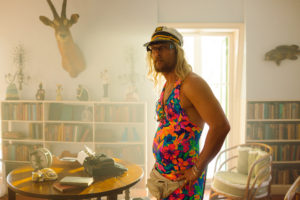 These films challenge us to consider the assumptions of what we choose to deem as living. It’s safe to say, many of us would love to be Moondog for a day. Do we not all too often admire—nay, envy!—those in power for the ease with which they are allowed to enjoy life? And how many of us would judge someone like Halley, imagining all the terrible decisions she must have made to be trapped where she is? Of course, we know how often wealth is obviously wasted, becoming nothing but a hollow facsimile of paradise—just as we’re well aware how often we fail to see Christ in the lives of those we deem unworthy. Christ tells us that in order to have part in Him we must have the faith of a child and it is this remarkable faith that Moonee possesses. Whereas Moondog’s actions rightfully condemn him for all he wastes, through Moonee’s eyes we see clearly all the mercy that Halley deserves. We will not find Christ jet skiing around Miami – we will find him at home in the Magic Castle Motel. The question we are finally left with is: whose kingdom is this?
These films challenge us to consider the assumptions of what we choose to deem as living. It’s safe to say, many of us would love to be Moondog for a day. Do we not all too often admire—nay, envy!—those in power for the ease with which they are allowed to enjoy life? And how many of us would judge someone like Halley, imagining all the terrible decisions she must have made to be trapped where she is? Of course, we know how often wealth is obviously wasted, becoming nothing but a hollow facsimile of paradise—just as we’re well aware how often we fail to see Christ in the lives of those we deem unworthy. Christ tells us that in order to have part in Him we must have the faith of a child and it is this remarkable faith that Moonee possesses. Whereas Moondog’s actions rightfully condemn him for all he wastes, through Moonee’s eyes we see clearly all the mercy that Halley deserves. We will not find Christ jet skiing around Miami – we will find him at home in the Magic Castle Motel. The question we are finally left with is: whose kingdom is this?
Benjamin PowerGriffin (@a_benjamin) is a PhD student at the Oblate School of Theology in San Antonio, TX studying spirituality and aesthetics. At this point in his life, all he really knows how to talk about is either music or mysticism – and that’s just fine by him. He writes about music for PopTheology. He is also married to an incredible artist and costume designer, for whom he is eternally grateful.


